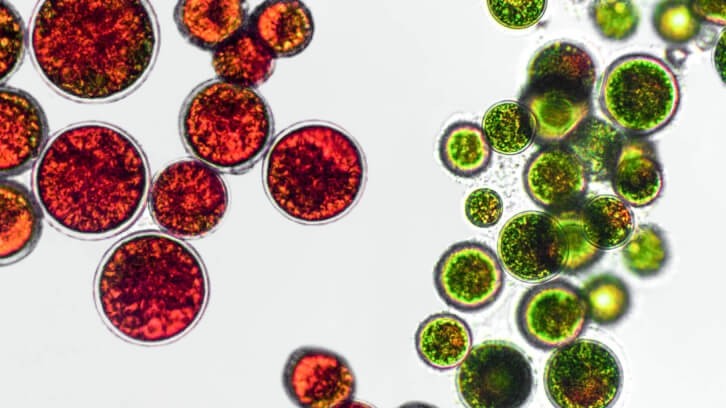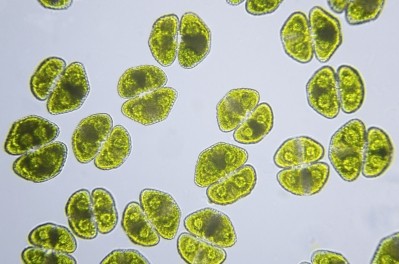Astaxanthin reduces obesity-related complications from Duchenne muscular dystrophy: Study

With its antioxidant and anti-adipogenesis effects, the findings published in the journal Nutrients showed that the compound reduced lipotoxicity and increased abundance of beneficial bacteria in mice. This is promising, as DMD causes a deficiency that results in “muscle fiber damage, inflammation, impaired regeneration of muscle fibers and replacement of muscle by fibrotic and adipose tissue, leading to progressive deterioration of muscle mass and function,” the Chinese scientists noted.
Obesity in DMD patients also causes a decline in physical and lung function, leading to increased risk of fractures and obstructive sleep apnea.
“Once weight is gained, biologic adaptations and limited physical activity make it extremely difficult to lose weight,” the researchers wrote. “Therefore, prevention strategies are crucial to manage weight and to improve quality of life for DMD patients.”
There is increased interest in phytochemical supplementation in weight management and astaxanthin, which is naturally fat-soluble. It can improve glucolipid metabolism, offering protection from oxidative damage and can regulate the immune system.
Study details
The researchers assigned 18 male mice to one of three groups: a normal diet group, a high-fat diet group and a high-fat diet containing astaxanthin. The astaxanthin was purchased from Shanghai Macklin Biochemical Technology Co., Ltd.
The experiment lasted for 16 weeks where body weight and food intake were monitored once a week. At the end of the intervention, the scientists measured grip strength and a treadmill endurance. Later, blood, muscle and fecal samples were collected from the mice.
The mice had "increased gastrocnemius fiber cross-section area and grip strength, improved treadmill endurance test and mitochondrial morphology and reduced muscle triglyceride and malonaldehyde levels," the researchers wrote.
Astaxanthin intervention reduced high-fat-diet-induced body weight gain and subcutaneous fat mass by 17% and 24%, respectively.
Commenting independently on the findings, Mark Miller, president of Kaiviti Consulting, a boutique consulting company for the nutrition and wellness industries, said that caution is needed when interpreting animal models of disease and that clinical trial follow up would be the obvious next step.
"Astaxanthin was included via the meals, and it is not clear if the dosing [for mice] would match what one could expect to be achieved with dietary supplementation," he said. "The amounts of astaxanthin in human diets are traditionally very low, so the issue would be what level of supplementation would be required in humans."
However, Miller finds the microbiome effects uncovered during the study to be intriguing.
“Yes, the bad actors were not suppressed, but an array of beneficial microbial species were augmented,” he said.
The researchers found astaxanthin supplementation failed to improve microbiota diversity, but it increased the abundances of beneficial bacteria Akkermansia, which has anti-obesity effects and can improve metabolic disorders induced by a high-fat diet.
Additionally, astaxanthin increased the abundances of Bifidobacterium, Butyricicoccus and Staphylococcus in this study. Bifidobacterium and Butyricicoccus can improve metabolic function in pathological conditions, while Staphylococcus aureus and Staphylococcus epidermidis may serve as opportunistic pathogens.
Muscle damage
A severe X-linked inherited neuromuscular disease, DMD is characterized by insufficient production of dystrophin—a protein located mostly in muscles and used for movement—due to mutations in the dystrophin gene. Glucocorticoid treatment is typically the standard of care in DMD to improve muscle function, delay the loss of ambulation and onset of cardiomyopathy and prolong survival, the study noted. However, this treatment has various complications including weight gain, osteoporosis and short stature.
Moreover, microbiota dysbiosis, which is associated with reduced microbial diversity and increased harmful bacteria, causes gut inflammation and immune dysregulation, which exacerbates DMD muscle damage.
“An improved strategy targeting gut dysbiosis could help reduce inflammation and rescue muscle strength. Studies have confirmed the probiotic and anti-gut inflammatory properties of astaxanthin in mice fed high fat diet,” the researchers added. “Gut microbiota plays a crucial role in connecting food intervention with disease improvement, as it can be directly influenced by diet. Thus, the effect of astaxanthin on gut microbiota of DMD patients is worth exploring.”
Source: Nutrients
“Astaxanthin Ameliorates Worsened Muscle Dysfunction of MDX Mice Fed with a High-Fat Diet through Reducing Lipotoxicity and Regulating Gut Microbiota”
doi: doi.org/10.3390/nu16010033
Authors: Ying Chen et al.














